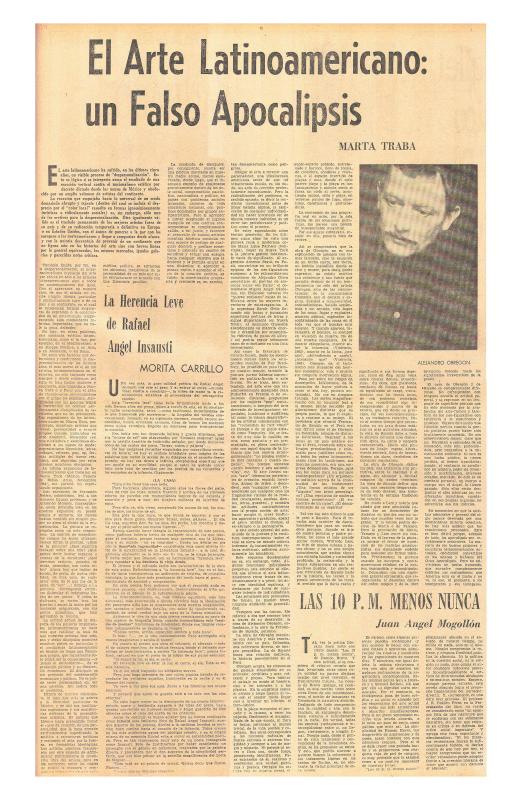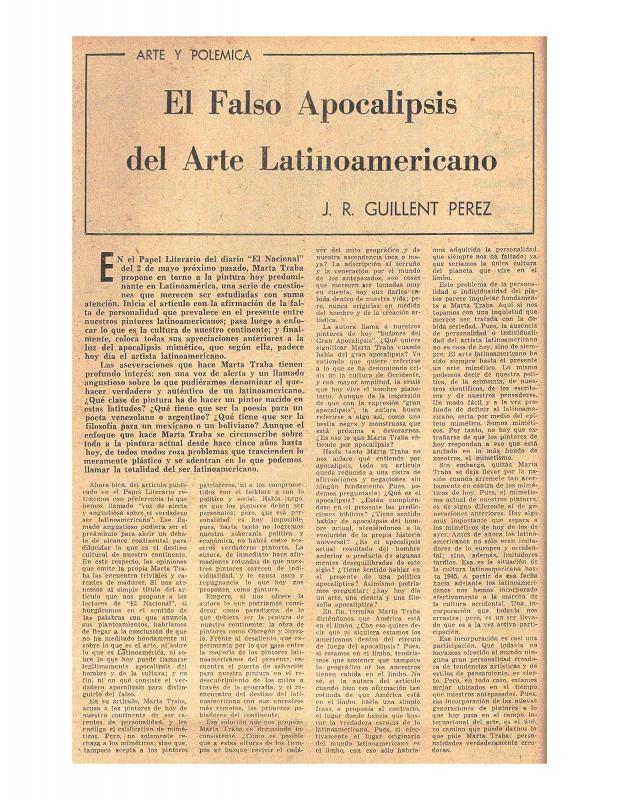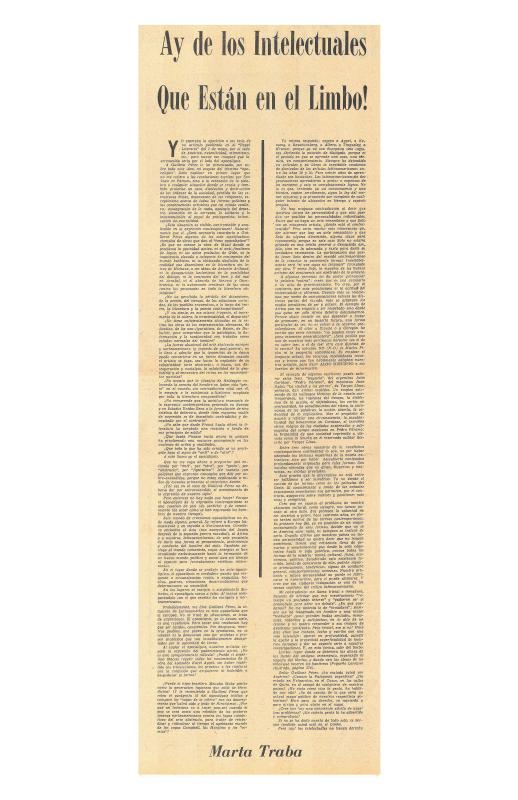This article is the second in a series of four that J. R. Guillent Pérez—who studied philosophy in Paris at the beginning of the 1950s and was a member of Los Disidentes group—on the controversy about the identity of Latin American art that took place in Caracas in 1965. The controversy was a result of the article written by Marta Traba (1923–83), the Argentinean art critic based in Colombia, entitled “El arte latinoamericano: un falso apocalipsis” [see doc. no. 799377], published on May 2, in the literary supplement of El Nacional newspaper. It concerns the controversy that extended to September of that year in this newspaper and the Revista Nacional de Cultura. Traba was invited to give three speeches at the Museo de Bellas Artes de Caracas; there was also radio and television coverage, as well as a final debate at the Ateneo de Caracas. In addition to Guillent Pérez and Traba, there were other participants including painters Alirio Rodríguez and Alejandro Otero, critics Roberto Guevara and Perán Erminy, as well as one other participant, philosopher Ludovico Silva.
From the start of the controversy (“El falso apocalipsis del arte latinoamericano” [doc. no. 799219]), Guillent Pérez keeps the debate on philosophical grounds (being, nothingness, and nihilism), and at some moments, on the classic concerns of philosophy: categories and absolutes like beauty, goodness, and truth. So much so that in his opinion, more people should participate in the debate “with the plan and purpose of determining the ultimate truths of the matter in question.” Throughout the controversy, he makes a constant comparison between the validity of his proposition regarding a positive nihilism that is in open opposition to Traba’s negative apocalypse.
Along with Alejandro Otero, Guillent Pérez may be considered the principal ideologist and theoretician to lay out the foundation for the position of Los Disidentes (Paris, 1950); these two contributed the essays most rich in ideas to their eponymous magazine, the former in regard to the arts and the latter in philosophy. Guillent Pérez would become a fervent defender of the “universalism” proposition and the full inscription of Latin America into “Western culture.”
The articles that appeared in the literary section of El Nacional were compiled in the Colección Delta Solar as Modernidad y postmodernidad. Espacios y tiempos dentro del arte latinoamericano (Caracas: Museo Alejandro Otero, 2000). Another selection of the documents that appeared in the Revista Nacional de Cultura was published in Roldán Esteva-Grillet, compiler, Fuentes documentales y críticas de las artes plásticas venezolanas. Siglos XIX y XX (Caracas: CDCH/UCV, Vol. II, 2001).
For more on this debate, see another of Traba’s responses entitled “Ay de los intelectuales que están en el limbo!” [doc. no. 799428].



